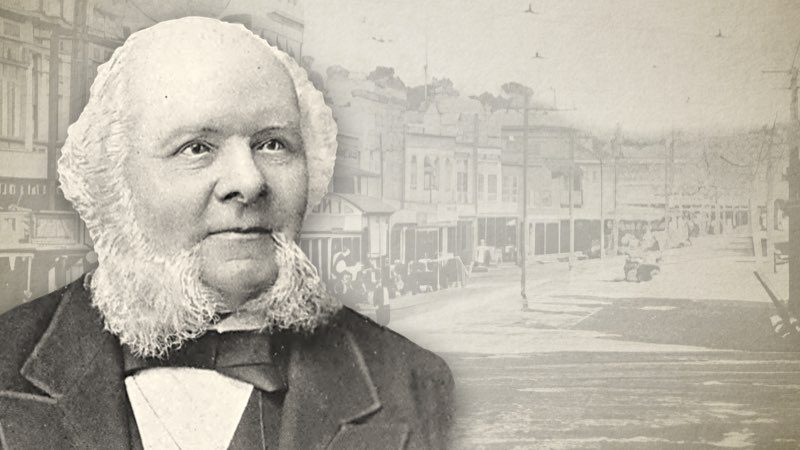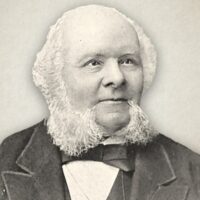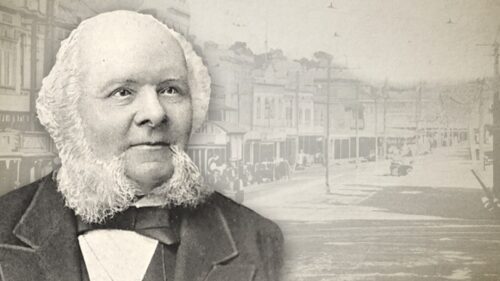
Zephaniah
The inspired prophets, whose writings are recorded in the pages of Holy Writ, for the benefit of the Church of God, down to the end of time, wrote as the word of the Lord came unto them. Thus did Jehovah, in infinite wisdom, speak through them; and though, sometimes, the language seemed to refer to the immediate time, or to events lose at hand, there is a spiritual meaning also, running through Scripture, which the Holy Spirit unfolds to the Christian from time to time, that he may be established in the mysteries of the kingdom of heaven. Thus the word of the Lord came unto Zephaniah, or in other language, “Thus saith the Lord.”
This prophet, who was contemporary with Jeremiah, prophesies of severe judgments which shall come against Judah and other nations, and a large proportion of these predictions were accomplished during the prophet’s life-time, so that if looked at as a mere narrative of events which occurred 640 years before the birth of our Saviour, how could they be profitable to the soul of the believer nineteen centuries afterwards, unless having a spiritual reference to far distant times in the history of the Church of Christ and the world? “Hold thy peace at the presence of the Lord God, for the day of the Lord is at hand, for the Lord hath prepared a sacrifice, he hath bid his guests.” This is Zephaniah’s statement, in connection with judgments which are to come upon Judah. Surely then Judah and Judah’s condemnation must typify the world and the world’s condemnation.
This prophecy leads us then particularly to contemplate the solemn day of God’s vengeance, “a day of trouble and distress”—“a day of waste and desolation”—a day of darkness and gloominess—a day of clouds and thick darkness to the ungodly; then will there be a perpetual desolation of nations; Gaza, which signifies “a goat,” is to be forsaken. “And He will set the sheep on his right hand, and the goats on the left” (Matt. 25:38); “Mine anger was kindled, and I punished the goats” (Zechariah 10:3); and Askelon, which means “a fire of infamy,” is to become “a desolation”—we think this refers to the hotbeds of iniquity, and dens of vice, that are to be found in our land. “A strange woman is a narrow pit, she also lieth in wait as for a prey, and increaseth the transgressors among men;” “At last it biteth like a serpent, and stingeth like an adder” (Prov. 27:32). And Ashdod, which signifies “a wild open place,” is to be driven out at noon-day—“Wide is the gate, and broad is the way, that leadeth to destruction, and many there be which go thereat” (Matt. 6:13). And Ekron, which implies “barrenness,” shall be rooted up—”I went by the field of the slothful, and by the vineyard of the man void of understanding, and lo, it was all grown over with thorns, and nettles had covered the face thereof” (Prov. 24:30). “Let the wheat and the tares grow until the harvest, and in the time of harvest, I will say to the reapers, Gather ye together first the tares, and bind them in bundles to burn them, but gather the wheat into my barn” (Matt. 12:20).
And woe unto the nation of Cheriothites, that is the persecutors of the children of God. “Fret not thyself because of evil doers, neither be thou envious against the workers of iniquity, for they shall be cut down like grass, and wither as the green herb” (Psalm 37:1, 2); “If they have persecuted me, they will also persecute you” (John 15:20). “And the Baal worshippers are to be destroyed, and them that swear by Malcham;” that is, we think, ungodly carnal priests, who lead to distraction their deluded followers; “Can the blind lead the blind? shall they not both fall into the ditch” (Luke 6:39). Nothing seems to be more obnoxious to the great and terrible God than false worship and idolatrous worshippers. So significantly does Jehovah express his solemn hatred for such, that wherever they are condemned, in reference to final judgment, they are classed with the lowest order of things in creation. We have marked this all through Scripture. Jehovah says, “He will consume all things from off the land, man (that is, unregenerate man), and beast, the fowls of heaven and the fishes of the sea, and the stumbling-blocks with the wicked, and them that worship the host of heaven upon the house-tops” (Zephaniah 1:5). This leads us to the fact that in the midst of all this desolation and destruction of nations and cities, there is “the rejoicing city,” that dwelt carelessly, that said in her heart, “I am, and there is none beside me”—how is she become a desolation? And can we err in believing this significantly points to the pompous and mysterious city of Babylon—the mother of harlots—who stands forth with satanic effrontery, in opposition to the glorious Church of Christ and his kingdom, and “rejoicing” in her greatness, her very language is, “I am the Church, and there is none beside me?” “Alas! alas! that great city Babylon, that mighty city—for in one hour is thy judgment come!” (Rev. 18:10). But in the midst of all this awful scene, and overthrow of nations, which the prophet Zephaniah lead us to contemplate, what is to become of Zion? Rest satisfied, beloved, that she is blessedly safe, for “The Lord hath chosen Zion, he hath desired it for his habitation; this is my rest for ever, here will I dwell, for I have desired it” (Psalm 132:18, 14). Well may the prophet turn away from the sad picture of destruction and desolation on account of sin, and break forth into joyfulness of heart, with the exhortation, “Sing, O daughter of Zion; shout, O Israel; be glad and rejoice with all thy heart, O daughter of Jerusalem; the Lord hath taken away thy judgments, he hath cast out thine enemy: the king of Israel, even the Lord, is in the midst of thee: thou shalt not see evil any more” (Zeph. 2:14, 15). Cheer up, beloved, you may be “an afflicted and poor people, “but thanks be to God, you do not belong to Askelon or Ashdod, but to Zion, the city of our God. Art thou sorrowful? He will gather them that are sorrowful for the solemn assembly who are of Zion, to whom the reproach was a burden. Art thou afflicted? The king of Zion will undo all that afflicts thee, yea, dear children of the loving God, fellow-travellers and heirs of the glorious kingdom, “The Lord our God in the midst of thee is mighty; he will save, he will rejoice over thee with joy, he will rest in his love, he will joy over thee with singing,” and you know the Psalmist says, “He that goeth forth and weepeth, bearing precious seed, shall doubtless come again with rejoicing, bringing his sheaves with him.”
When he reveals the Book of Life,
O may I read my name
Amongst the chosen of his love,
The followers of the Lamb.”
George Cowell (1822-1884) was an Independent sovereign grace preacher and author. He also served a short time as editor of the Gospel Magazine.




